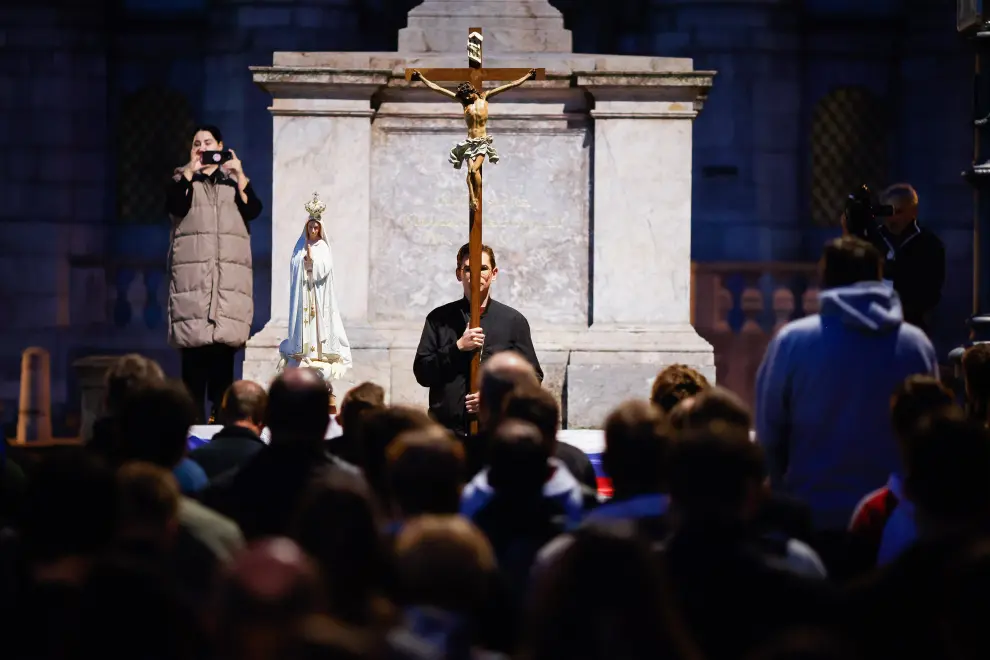Mixed reactions as first public prayer held in Ljubljana
Photo: Anže Malovrh/STA
The Catholic Youth organisation held the first public prayer of the rosary in Ljubljana's Congress Square in the early morning on 13 October. Around a hundred people attended the event, including the youth wing of the largest opposition party. The newspaper Delo reported that some criticised the event as sexist since men in particular had been invited.
A public prayer is more powerful than a private one, the organiser wrote in the invitation, addressing it in particular to "young men and boys, who are the first to be called to be leaders and an example in serving as a witness to faith".
That caused an uproar among a part of the public who believe that such actions deny women equality and social roles that men automatically have in society.
The founder of the Catholic Youth, the Slovenian Bishops' Conference (SŠK), supports the organisation's activities, including the prayer in the public square, arguing that it is a legitimate and common expression of faith.
Dismissing accusations about undermining gender equality, the SŠK said that the Church organised numerous events every day dedicated to different social groups. The organiser meanwhile stressed the importance of men in efforts to strengthen people's faith.
 Catholic Youth organisation holds the first public prayers in Slovenia in Ljubljana's Congress Square. Photo: Anže Malovrh/STA
Catholic Youth organisation holds the first public prayers in Slovenia in Ljubljana's Congress Square. Photo: Anže Malovrh/STA
The participants prayed for the homeland, for the faith of Slovenian youth, for a successful start of the academic year and for world peace. The organizer modelled the event on public prayers abroad, for example in Poland and Croatia, and intends to continue holding them.
Aleš Črnič, a religious studies expert from the Ljubljana Faculty of Social Sciences, told Delo that the event was part of the Church's global movement to retraditionalize social life and impose conservative views and norms on the rest of society.
He sees the Congress Square prayer more as a "political manifestation" than a religious ritual, noting that political activity is not protected by the principle of religious freedom.
According to Delo, the youth wing of the Democrats (SDS) had announced it would take part in the event, while the Christian conservative party New Slovenia (NSi) had not.
Meanwhile, constitutional law expert Samo Bardutzky from the Ljubljana Faculty of Law notes that the Constitution safeguards not only private expressions of faith but also public ones, including those that may border on political expressions.



